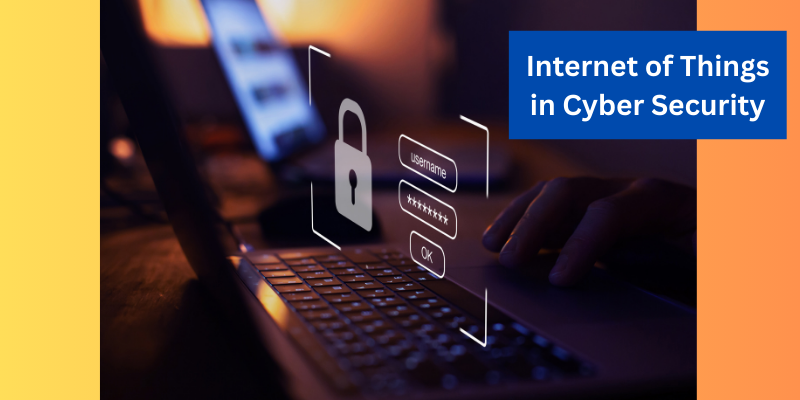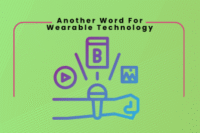Internet of Things in Cyber Security – Best Tips
Published: 12 Dec 2025
The Internet of Things in cyber security will be explained in this article, covering its challenges, best practices, and tips to secure connected devices.
The Internet of Things (IoT) refers to a network of devices connected to the internet that can collect, share, and act on data. These devices include everything from smartwatches and fitness trackers to connected thermostats and security cameras. For example, a smart thermostat learns your preferences and adjusts the temperature automatically, offering convenience and energy savings.
Why Cybersecurity Matters in IoT
As the use of IoT devices grows, so do the risks associated with them. Each device becomes a potential entry point for hackers. For example, a single compromised smart light bulb could expose your entire home network to cybercriminals. This makes cybersecurity critical to protect sensitive data and maintain the functionality of these devices.

The Intersection of IoT and Cybersecurity
Here we can study how IoT devices work and the challenges IoT faces in cyber security.
How IoT Devices Work
IoT devices work by collecting data through sensors, transmitting it to a central system, and then acting on the insights received. For instance, a smart home system can adjust your lights and locks based on your smartphone’s location. However, this interconnectivity can become a vulnerability if security measures are weak.
The Challenges IoT Faces in Cybersecurity
Many IoT devices have limited built-in security features, making them easy targets for cyberattacks. For example, baby monitors have been hacked, allowing unauthorized users to spy on households. These vulnerabilities stem from outdated software, default passwords, and unencrypted communications, creating significant challenges in securing the IoT ecosystem.
Best Practices for Securing IoT Devices
Here are some important points given below to secure IoT devices.
- Change Default Passwords: Default passwords are a hacker’s dream. Create strong, unique passwords for each device.
- Update Device Firmware Regularly: Manufacturers often release updates to fix security vulnerabilities. Ensure your devices are always upto date.
- Use a Secure Network Connection: Secure your Wi-Fi with a strong password and opt for WPA3 encryption for enhanced protection.
Examples of Security Solutions
- Firewalls and Antivirus Software: These tools create a protective barrier around your network, reducing the risk of unauthorized access.
- Two-Factor Authentication: Adding a second layer of security ensures that even if a password is compromised, hackers cannot easily gain access to your devices.
The Future of IoT and Cybersecurity
As IoT devices grow, keeping them safe from cyber threats is more important than ever. Strong security will shape the future of IoT.
Trends in IoT Security
Emerging technologies are reshaping cybersecurity for IoT devices. Artificial intelligence (AI) and machine learning are being used to detect and respond to threats in real time. Additionally, blockchain technology ensures secure data sharing, reducing the risk of tampering.
How IoT Security Will Impact Everyday Life
Enhanced IoT security will lead to safer smart homes and cities. Imagine a city where traffic lights communicate securely to optimize traffic flow or healthcare devices that monitor patients without risking data breaches. These advancements depend on robust cybersecurity frameworks.
6. FAQs
The Internet of Things (IoT) in cybersecurity refers to protecting all smart devices that connect to the internet, such as wearables, smart home gadgets, and sensors. Since these devices share personal or business data, cybersecurity ensures they remain safe from hackers and data leaks.
The Internet of Things (IoT) in cybersecurity refers to protecting all smart devices that connect to the internet, such as wearables, smart home gadgets, and sensors. Since these devices share personal or business data, cybersecurity ensures they remain safe from hackers and data leaks.
IoT devices are vulnerable because many come with weak default passwords, limited security features, and rarely get updated. Since they are always online, hackers can exploit these weaknesses to access private data or even control the devices.
To check if your IoT device is secure, make sure it uses a strong and unique password, install the latest updates, and enable any available security features. You can also review the device settings to see if it supports encryption, two-factor authentication, or alerts for suspicious activity.
Additional Tips
Here is a checklist that is necessary to check to secure the IoT devices.
Checklist for IoT Security
- Update passwords regularly.
- Check for firmware updates.
- Use a secure network with strong encryption.
By following these steps, you can protect yourself against potential Internet of Things cyber attacks and enjoy a safer digital experience.
To learn more or explore similar articles, click here.
Conclusion
The Internet of Things in cyber security is a critical topic as IoT devices become integral to our daily lives. From safeguarding personal data to maintaining device functionality, cybersecurity measures are essential.
Take action today! Secure your IoT devices by following best practices and staying informed about emerging security solutions. Explore ways to protect yourself in this increasingly connected world.

- Be Respectful
- Stay Relevant
- Stay Positive
- True Feedback
- Encourage Discussion
- Avoid Spamming
- No Fake News
- Don't Copy-Paste
- No Personal Attacks

- Be Respectful
- Stay Relevant
- Stay Positive
- True Feedback
- Encourage Discussion
- Avoid Spamming
- No Fake News
- Don't Copy-Paste
- No Personal Attacks



